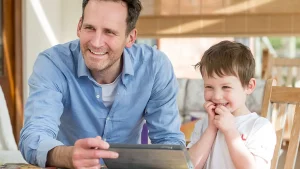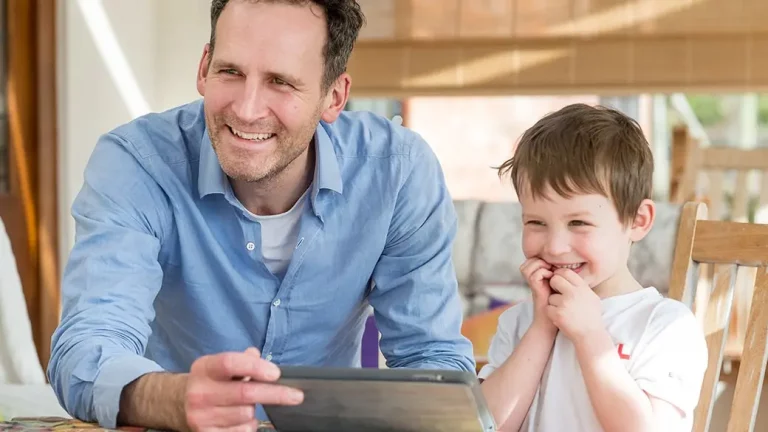In the latest of a continuing series, Grace shares her thoughts and reflections as to why she believes teachers make the best tutors. Drawing on her experience as a classroom teacher in the independent sector, she provides a fascinating insight into the unique nature of teacher training and how it produces the best educators.
Elsewhere on this site you can find articles about why it is best to use a trained teacher as your child’s tutor.
For example, Cecilia shares her top 7 top reasons here.
Here, though, I thought I would give another perspective, based on personal experience.
Teacher Training
We all know what ‘training’ means in the general sense.
It means preparing someone to carry out an occupation or series of procedures by getting them to follow agreed standards and practices which have been refined over time.
Thus, we expect everyone who takes care of us and our family members to have been trained in what they do: train drivers, firefighters, police officers, soldiers, nurses, doctors and, of course, teachers.
Yet, while there is some media attention given to how those entering the occupations and professions mentioned above are prepared, there has been remarkably little coverage of the training given to those practising education.
Regulated Professionals
Like almost every activity in Britain, the quality of teacher training is assured and regulated by the government. In this way, comparable standards are attained at all the numerous providers of teacher training in the country.
That said, there remains some freedom in how teacher training entities carry out their activities. Providers do it differently, in short.
Thus, although it all happened quite a few years ago, I thought it might be interesting to have a sense of what one kind of teacher training entailed, so that parents can appreciate the range and depth of what is expected of the trainees themselves.
Two or three things remain in my mind from my training at Cambridge University.
First, was the depth of care and thought we were expected to bring to our vocation.
Our first presentation was centred on Michael Apted’s marvellous documentary first called Seven Up, which tracked the lives of different people of varying backgrounds at seven year intervals. The point being made, which we discussed at great length, was that what happens to children, for good and ill, stays with them for the rest of their lives.
As teachers, we were to realise we were a vital part of that process.
To paraphrase St. Augustine only slightly: ‘Give me the child at seven years old…and I will show you the adult’.
What happens in childhood, and what teachers do during this period, matters very much indeed.
Reflective Practitioners
The second aspect of our training that I remember with uncomfortable clarity is that our techniques of teaching were scrutinised mercilessly.
Each member of our class of graduates preparing to teach English was filmed as she or he presented a concept to the rest of the group.
The class and our instructor then analysed each of those film clips, drawing attention to what we were doing, as teachers, both to make explanations clear to our ‘learners’ (the other members of the class, in this case) and, of course, without being aware of it, to distract and undermine our own performance.
It was a painful yet necessary exercise. We all became much better teachers as a result.
This kind of video scrutiny of a teacher’s techniques is a vital aspect of helping them to learn to do it better.
I was struck, also, by the way that Cambridge University made us reflect on what education means, in the broadest sense.
After we had completed a term’s full-time teaching placement in a school, optional courses on many different aspects of schooling around the world were made available to us.
I chose to study how Communist countries had approached the provision of education.
The course was taught by a distinguished Polish professor from the university’s faculty of education and history and was full of fascinating insights.
Practical Training
Yet what was most impressive and memorable about my teacher training was the way my developing practice in the classroom was supported by my tutor and, indeed, by the patient staff at the school where I had been placed.
I won’t pretend it was easy or that every lesson went well from the very beginning.
Indeed, there were moments when I thought I might give it all up and do something easier…like lion-taming…
There were some frightful lessons which, even now, make me shiver with embarrassment when I recall them.
However, my wonderful mentors persevered and gradually turned me into a passable teacher.
And, after a few more years on the job, I might even say I became quite a good one.
This is only one teacher’s experience of teacher training. Others will have seen things happen differently. One teacher I know had a training course that began with sessions of psychological self-analysis! That university’s teacher education department reasoned that no teacher could be in a position to instruct young people unless she or he had a good knowledge of themselves first.
It was wise thinking on their part.
Final Thoughts
In short, the very best tutors will certainly be those who have been through the most rigorous kind of training and preparation for what some still consider the vocation of teaching.
We (and I am proud to count myself amongst that number) have been through courses that have both challenged us to think deeply about the importance of what we are doing and have had highly experienced mentors to hone practical skills of classroom management and building learning relationships with young people.
Although, of course, we are always learning, trained and experienced teachers have mastered the skills of instruction and the philosophy and pedagogy that lie behind them.
Your children are in the safest possible educational hands with trained teachers!


Start the discussion!